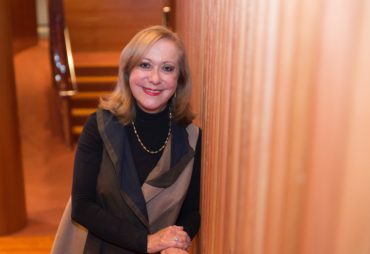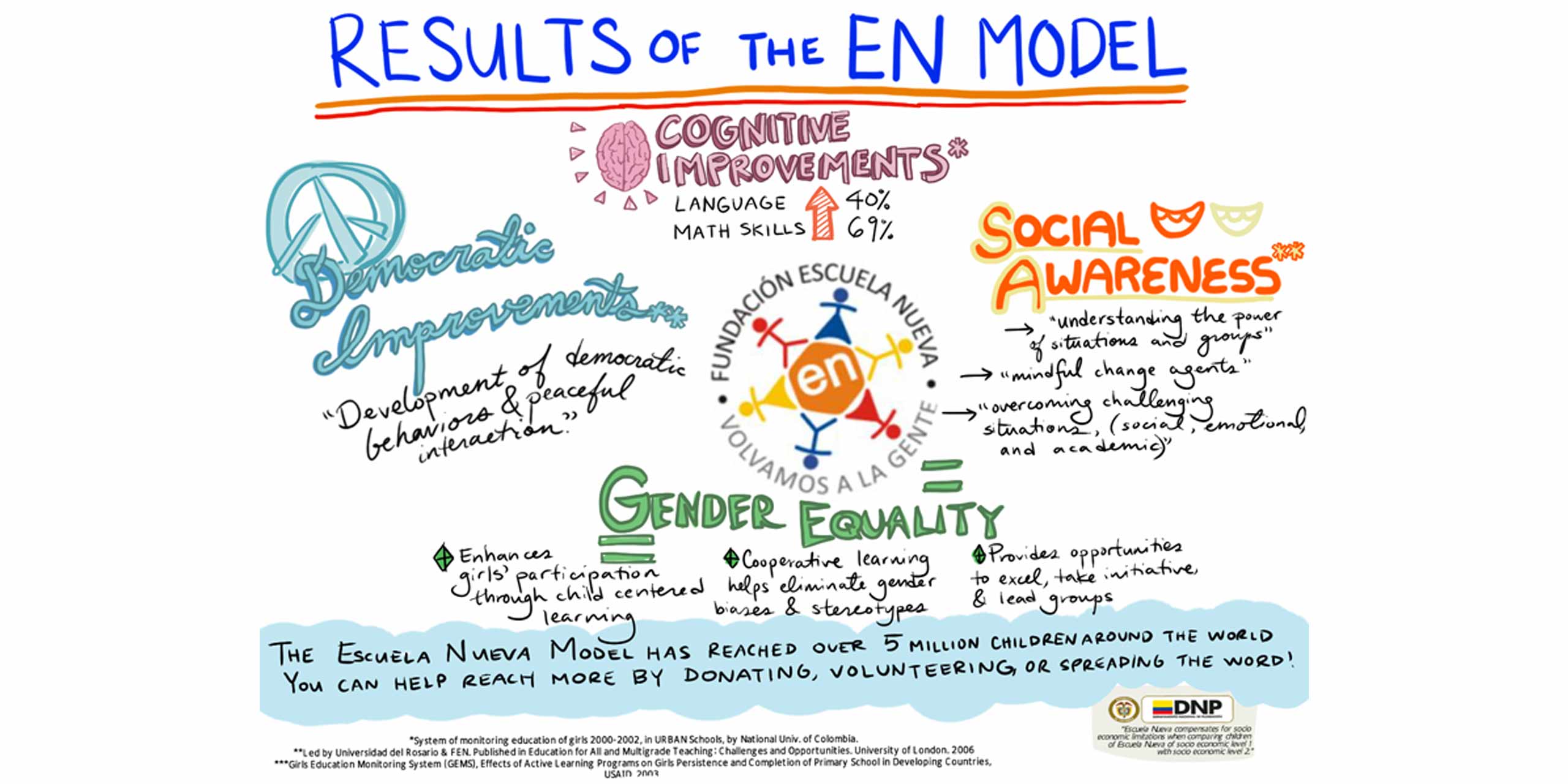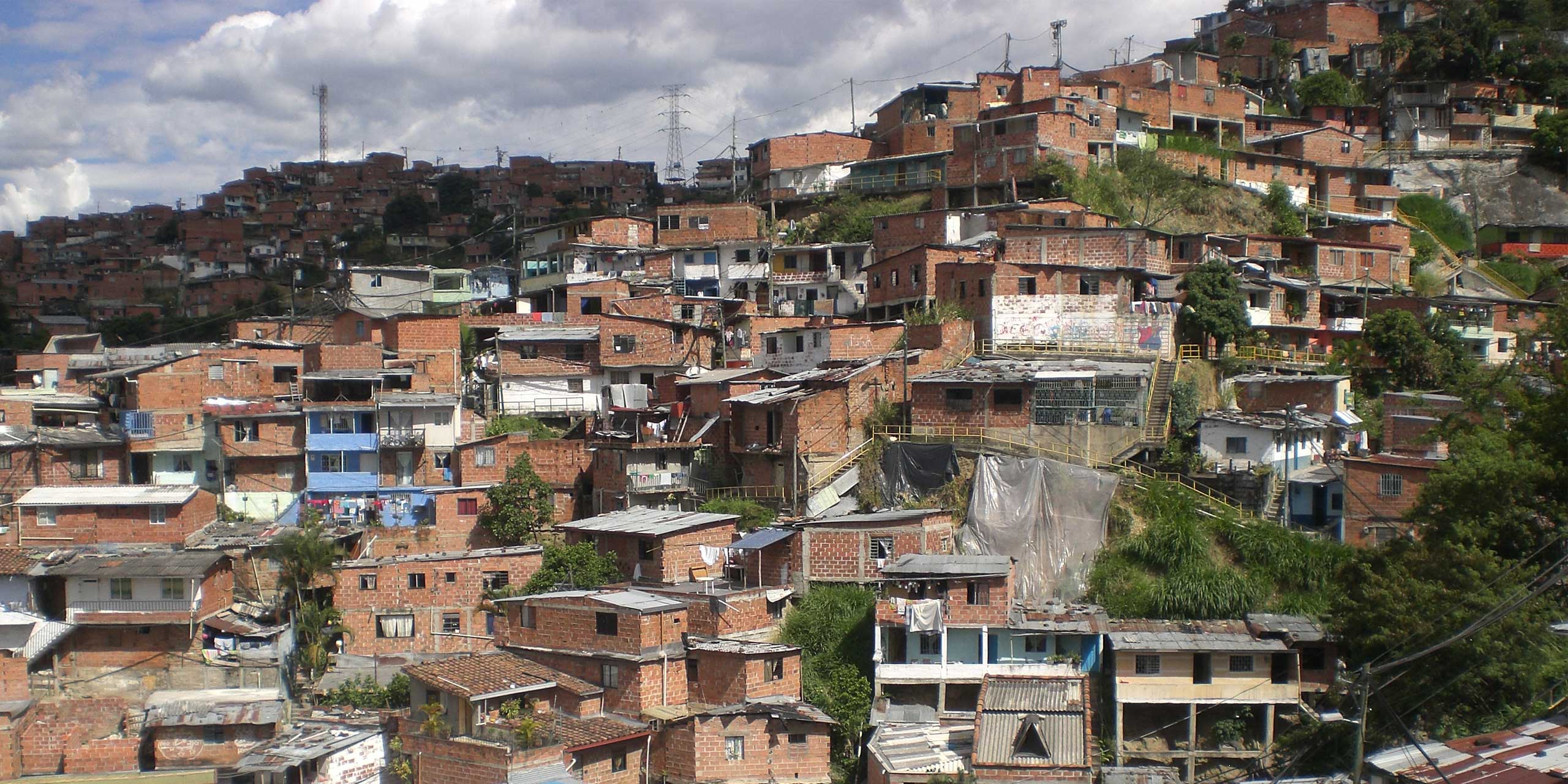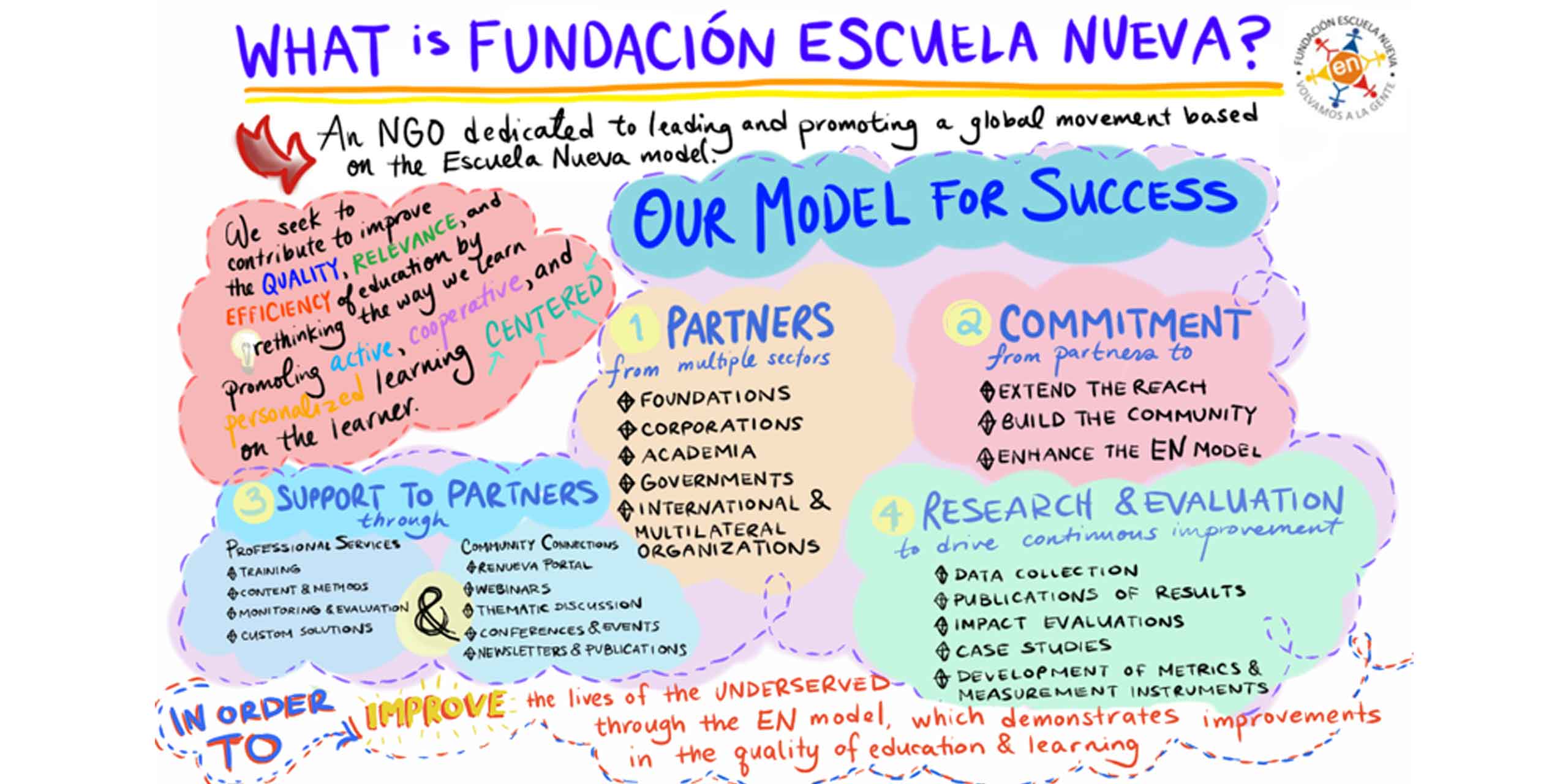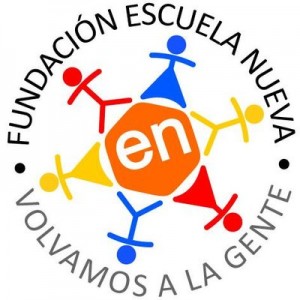
About the Organization
Fundación Escuela Nueva (FEN) works with children, teachers, families, and education administrators to improve the quality and relevance of basic education through the implementation of Escuela Nueva. Fundación Escuela Nueva’s child-centered, collaborative learning approach has been proven to transform the conventional school and improve academic achievements, and foster democratic behavior, tolerance, and citizenship and entrepreneurial skills.
Ambition for Change
All children, regardless of their context, develop their full potential to thrive and live prosperous lives through a quality education that equips them and empowers them to be contributing individuals of a flourishing society; reducing inequality and combating poverty.
Path to Scale
FEN works mainly in public schools and with educational authorities, as they are the primary vehicle to scale impact and influence public policy. To ensure quality and sustainability, FEN also partners with other actors and stakeholders that support systemic uptake of programs, research, evaluation, and replication.
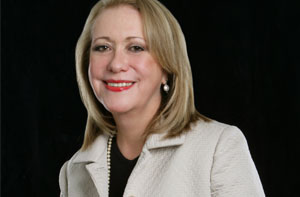
Vicky Colbert
Founder and Director, Fundación Escuela Nueva
From an early age, Vicky Colbert was convinced that achieving sustainable democracy required that all children be educated to become future citizens of their country. In her twenties, she followed in the footsteps of her mother as an educator, and was moved by the civil conflict that decimated communities and families in Columbia, leaving a large void in quality education for the country’s poor. As a result, in 1975 she co-designed the Escuela Nueva pedagogical model to reach and empower poor, rural children in Columbia through quality education methods. After completing her undergraduate Sociology degree at Javeriana University in Colombia and earning two masters degrees--one in Sociology of Education, and the other in Comparative International Education from Stanford University--she started the Fundación Escuela Nueva (FEN) in 1987. She has been the Executive Director of ENF ever since, sharing and adapting the Escuela Nueva model in Columbia and internationally, as well as continuing to innovate and enhance the model through new developments and programs.
In addition to becoming a fellow at the Schwab Foundation and Ashoka, she has received numerous awards, including: World Technology Award in Social Entrepreneurship (2005), Revista Semana’s 100 Most Influential Women of Columbian History Award (2005), Clinton Global Citizenship Award (2008), WISE (World Innovation Summit in Education) Award (2009), Kravis Prize in Nonprofit Leadership (2011) and WISE Prize Education Laureate (2013).
In 2018, 357 remote rural Colombian schools were reached and 911 were reached in 2019.Trained 992 teachers in FEN’s child-centered, cooperative learning approach in 2018 and 2,119 in 2019.Reached 11,578 rural students with high-quality, self-paced, self-directed learning materials in 2018, and 33,896 in 2019. Provided training and technical assistance to the government of Vietnam to initiate the implementation of Escuela Nueva. Given its positive results, the government scaled the program Vietnam Escuela Nueva, (VNEN) nationally, reaching approximately two million children. In 2017, WB impact evaluation study of the VNEN program compares the experience of students and school communities from VNEN schools with that of a randomly selected control group of traditional schools. The cohort comparison of children shows that VNEN positively impacted both non-cognitive and cognitive skills of students in grades 3 through5. A 2017 impact evaluation in Colombia showed that students in schools officially classified as Escuela Nueva (EN) schools score significantly better than conventional schools. This effect is comparable to the effect of the difference of one socioeconomic level. Furthermore, EN tends to decrease the achievement gaps between socioeconomic levels and genders. EN demonstrated significant results in the formation of democratic behaviors and peaceful social interaction of children, in comparison with conventional schools.
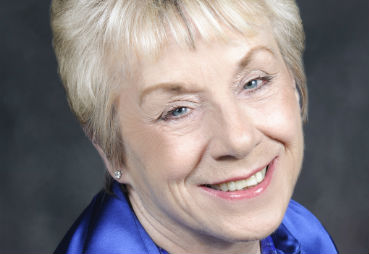
Sarah Smith Orr
Director of Strategic Partnerships, Fundación Escuela Nueva
Clarita Arboleda
Chief Operating Officer, Fundación Escuela Nueva